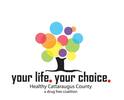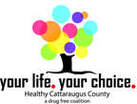It’s February and that means it’s American Heart Month. We generally don’t think too much about cardiovascular disease in relation to teenagers, but maybe we should.
According to Dr. Stephen Daniels, chair of the department of pediatrics at the University of Colorado School of Medicine, "When you're talking about the development of risk factors in teens, which include high blood pressure, abnormal cholesterol, obesity, diabetes, cigarette smoking and vaping, a lot of the emphasis really should be on lifestyle."
In addition, nicotine increases blood pressure, increases heart rate – and therefore puts them at risk for not just heart disease, but obviously lung disease.
Alcohol is also factor. The cardiovascular system is affected by alcohol. At the time of drinking, alcohol can cause a temporary increase in heart rate and blood pressure. In the long-term, drinking above the guidelines can lead to on-going increased heart rate, high blood pressure, weakened heart muscle and irregular heartbeat. All of which can increase the risk of alcohol-caused heart attack and stroke.
The risk of cardiovascular disease is real for teens and according to Elizabeth Cespedes Feliciano, a research scientist at the Kaiser Permanente Northern California Division of Research, based in Oakland, California. "We do know from prior studies that habits formed during adolescence and also cardiometabolic risk factors established during adolescence can increase the risk of cardiovascular disease later in life."
Taking all these risk factors into consideration, it’s imperative to set guidelines and clear rules when it comes to tobacco and alcohol use. Parents are the greatest influence on a teen’s life and talking to them about the consequences of tobacco and alcohol use including the risks to their heart can set them on a course for a healthier future.
American Heart Month is a great time to turn over a new leaf and start living a healthier lifestyle. Start with a healthier diet that's heavy on whole foods, with lots of veggies, whole grains and healthy proteins like nuts or fish. Then get moving with exercise or outdoor activities.
"When implementing these kinds of healthy lifestyle factors, we get the best success when the entire family is working on this together," Dr. Daniels says, and when parents get involved – not just talking the talk, but walking the walk – experts say, it can be a boon for the heart health of the whole family.
Excerpts taken from:
US News “Why Teens Should Be Healthy too.” By Michael O. Schroeder
Alcoholthinkagain.com “Alcohol and Cardiovascular Disease.”
By: Liz Threehouse
Ideagirl Company and HCC Social Media & Marketing


 RSS Feed
RSS Feed